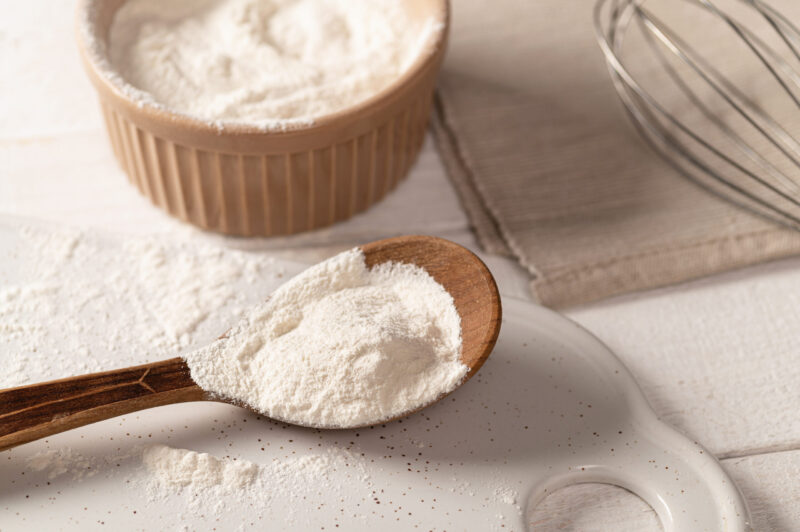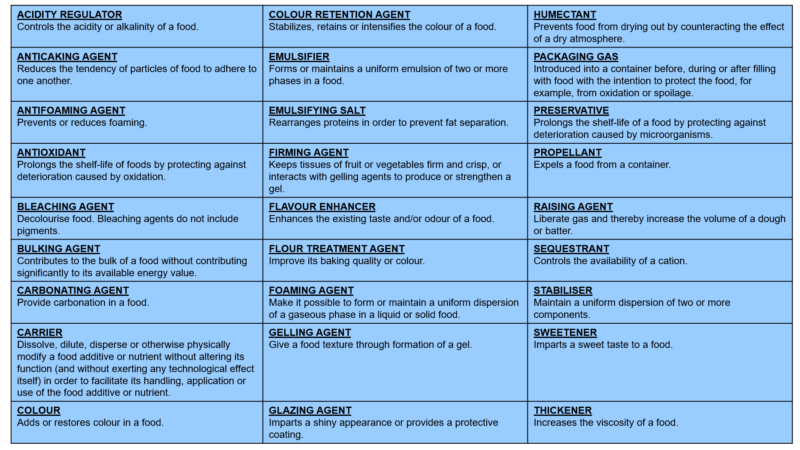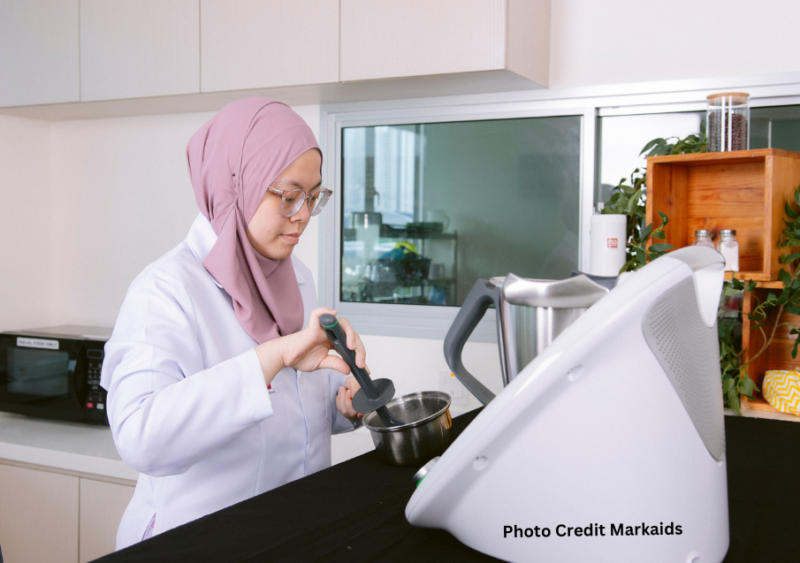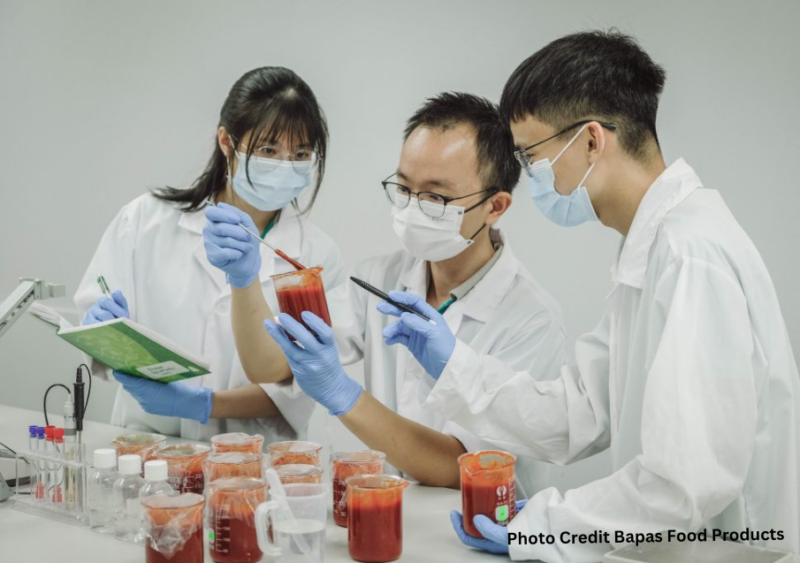
This site
is mobile
responsive

In the past decade, food security has emerged as a critical global issue, driven by the looming effects of climate change and rapid population growth. The need for cost-effective food production methods, without compromising food safety standards, has been on the rise. Meanwhile, lifestyle changes – many influenced by social media – are reshaping the essence, appearance, nutritional values, microbiological safety and shelf life of food. These changes are propelling advancements in agro-food and oleochemical research and innovation, leading to groundbreaking milestones in global food production.
A major segment of food production involves food ingredients and additives. Food ingredients are substances added to food to achieve a desired effect1 while food additives, although not consumed on their own, are crucial components within the food ingredient chain. While food ingredients help maintain quality, freshness and appearance along with delivering nutrition, food additives functions as intentional additions in food produced on an international scale for technological (including organoleptic) purposes.

Source: FAO 3
To ensure food security and sustainability, advancements in production technology have made significant strides. Trending developments in food ingredients, especially, have led producers to explore precision fermentation, utilising genetically engineered microorganisms to deliver proteins, flavours and vitamins. In parallel, nanotechnology has perfected flavour encapsulation techniques, which coat flavour compounds within materials, allowing for controlled release under specific conditions. Prolonged shelf life, without compromising nutrition, has also advanced through freeze-drying sublimation technology. Moreover, the production of functional food ingredients has benefited from various critical extraction technologies such as CO2 fluid extraction, low-polarity-based extraction, membrane-based and molecular distillation. These innovative technologies, optimised by automation in the manufacturing processes, increase efficiency, precision, hygiene and most importantly cost-effectiveness.

As of December 2023, MIDA has recorded over 50 companies undertaking food ingredients manufacturing projects, with a total investment implemented exceeding RM2.3 billion. The presence of global leaders in the food production sector attests to Malaysia’s capability as a gateway to global markets. For instance, Kerry Ingredients (M) Sdn. Bhd., which operates five (5) production facilities in Malaysia, taps into the country’s rich palm oil resources to produce palm oil-based fats products, food additives and functional ingredients.
As a leading multinational company, Swiss-based Givaudan is renowned for shaping the future of food by empowering customers to create exceptional food experiences with the right flavour, taste and wellness. In Malaysia, Givaudan has not only established a strong manufacturing presence but has also expanded its operations by creating a regional business services hub, supporting markets across the Asia Pacific region.
From the Nordics, Palsgaard Malaysia Sdn. Bhd. specialises in emulsifiers and stabilisers, utilising Malaysia’s palm oil resources as its feedstock. Other global players, including Scentium (Malaysia) Sdn. Bhd. and Monin Asia (KL) Sdn. Bhd. have ventured into the halal market, producing integrated halal-certified flavour solutions to cater to global demand.
Homegrown food ingredient players are also gaining momentum in research and development, successfully diversifying their markets. Markaids (Malaysia) Sdn. Bhd.’s commitment to R&D in specialty ingredients, formulation and innovative custom food solutions has enabled them to serve a wide network of food manufacturers in Malaysia and Singapore, offering optimal food presentation and finishing. Bapas Food Products Sdn. Bhd., another pride of Malaysia’s small medium enterprise (SME), is gaining recognition for its in-house expertise in food ingredients technology. Equipped with a state-of-the-art cold room, production facilities and an R&D laboratory, this company, supported by its recently listed holding company, Agricore CS Holdings Berhad, has successfully reached markets in China and Vietnam.
With decades of expertise in the halal market segment, Malaysia has positioned itself as a preferred hub for halal food production. The country’s abundance of agricultural-commodity resources has attracted global food producers to leverage their R&D findings to provide B2B customised solutions catering to specific market needs, in addition to offering essential raw material options. To further stimulate investment in this sector, the Malaysian Government has aligned strategies and action plans for the food processing industry in the New Industrial Master Plan (NIMP) 2030.
Malaysia offers a platter of advantages for investors in the food and functional ingredients value chain. The country’s prominent food processing sub-segments include livestock products, dairies, cocoa, cereal and flour, spices and palm oil-based products. With Malaysia’s strategic trade agreements, companies enjoy a competitive edge in accessing the global food markets from a well-established platform.
The global halal market remains largely untapped, creating immense opportunities for global and domestic food companies venturing into halal ingredients production. Companies setting up operations in Malaysia for the halal segment will receive support and facilitation in meeting halal requirements, focusing on smart technology, high value-added processes and halal-compliant materials in their production facilities.
Food Ingredients are considered promoted products under the category of ‘Processing of Agricultural Produce – Additives, Flavours, Colouring and Functional Ingredients’ and Palm Oil-based food ingredients. As such, these products are eligible for consideration of Pioneer Status / Investment Tax Allowance under the Promotion of Investment Act, 1986. MIDA welcomes high-value food products projects that incorporate the latest production and food safety technologies, including those geared towards halal production, which will further strengthen Malaysia’s status as a global halal hub.
To explore investment opportunities, please contact the Food Technology & Resource Based Industry Division, MIDA, https://www.mida.gov.my/staffdirectory/food-technology-resource-based-industries-division/.
1 https://www.foodingredientfacts.org/facts-on-food-ingredients/what-are-food-additives/
2 FAO: Codex Alimentarius Procedural Manual
3 Food additive classification – https://www.fao.org/gsfaonline/reference/techfuncs.html
